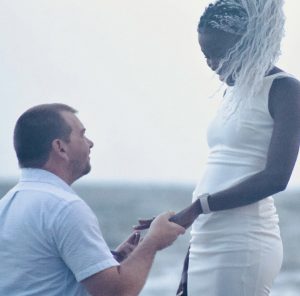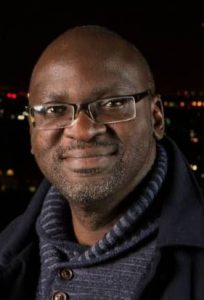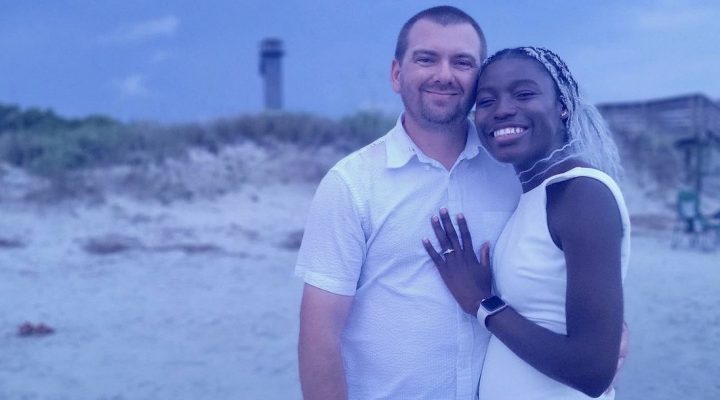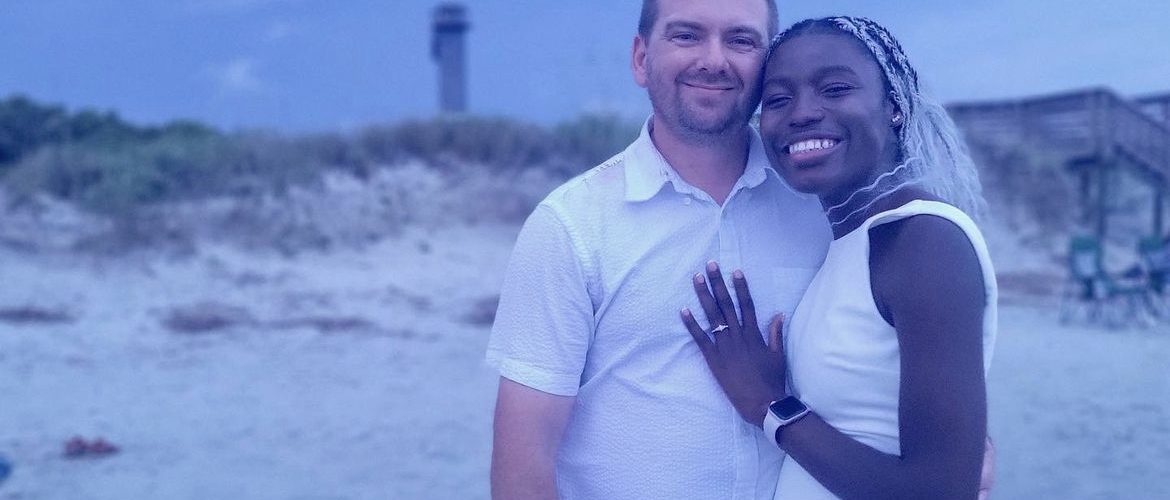Over the past two months, two reports brought into focus the contrasting fortunes of victims of terror relating to Nigeria.
One was the story of Joy Bishara, a former victim of the terrorist group Boko Haram, now living in the United States. Bishara was among the 270 young girls kidnapped from their school dormitory in Chibok, northern Nigeria, in April 2014. She escaped from her captors and later relocated to the U.S., where she’s lived since then.
(In May 2021, BNG reported on Bishara and two other victims of Boko Haram who graduated from American universities — Southeastern University in Florida and Keck Graduate Institute in California.)
On July 24 this year, Bishara shared on her Instagram account news about something else.
“I said yes to love, laughter, and happily ever after with my best friend. James exceeds everything I ever prayed for. God’s faithfulness amazes me daily. I am overjoyed to be starting this journey with the love of my life.”

(Source: Instagram)
Many respondents on Bishara’s social media account and elsewhere shared in her joy, congratulating and wishing her well. Her story is simply proof of the height a girl can attain if given the opportunity.
In an interview with ABC News in 2021, she said she wasn’t viewed as a promising student in Nigeria but nonetheless overcame those assessments and earned a university degree. The lesson: Anything is possible if the opportunities are available.
“I remember being told that I would not even be able to finish high school, that I’m very dumb, I won’t be able to get there,” she said. “All those harsh words at the time tore me down and made me so discouraged, but I didn’t give up. I used to go to high school classes like everyone else and also taking GED lessons. I never gave up or listened to the negative talk.”
A countervailing report, however, comes from the United Nations.
Unlike Bishara, many other girls and young women still languish in Boko Haram and other terrorist group dens across Nigeria. The International Day of Remembrance and Tribute to the Victims of Terrorism, marked on Aug. 21, was a reminder of the trauma many kidnap victims still face.
According to the Counter Extremism Project, “Since 2009, Boko Haram has claimed the lives of some 30,000 people and displaced over 2 million, according to a January 2019 Defense Post report.” This figure has only risen over time.
But Boko Haram is not the only terrorist sect operating in Nigeria. There are others, including bandit groups operating in mainly the northern part of the country, spreading fear, terror and death among the populace.
“Victims often feel forgotten and neglected once the immediate aftermath of a terrorist attack fades, with profound consequences for them,” said a U.N. report marking this year’s International Day of Remembrance and Tribute to the Victims of Terrorism.

Emmanuel Ogebe
Emmanuel Ogebe, a Nigerian-born U.S. lawyer and religious rights activist, who played a role in bringing Bishara and other victims of terrorism or religious persecution to the U.S., told BNG there are many terrorist groups operating in Nigeria in recent years and their impact on society has been devastating.
“There are now more terrorist groups in Nigeria (in recent years) than there were in the (past). It’s also noteworthy that Boko Haram and the Fulani killer militia, for a long time, were part of the top two deadliest terror groups in the world. At a point, Boko Haram was No. 1, ISIS was No. 2, and the Fulani militia in Nigeria was No. 4. At a point, Boko Haram was No. 2, and Fulani militia was No. 4. Can you imagine such in one country? Having two of the four deadliest terror groups in the world?”
“It’s very tragic, and there’s been a multi-generational impact,” he concluded.
As a result of the activities of the terror groups, Ogebe said, “a lot of children are displaced and disconnected and not able to reunite with their families in northern Nigeria. Families are destroyed or devastated, systems are wrecked. The impunity is so brazen that Deborah Samuel was burned alive, and people videotaped it with their phones and showed matches and said they did it.”
This December will be the 20th anniversary of Boko Haram’s first violent attack in northern Nigeria.
“There are over 20,000 children who are separated from their parents because of the conflict in northeast Nigeria, and this figure is about seven years old, so the number may have doubled by this time,” Ogebe said.
Amid that backdrop, Bishara’s life trajectory and engagement are “great news.”
Of the 13 young girls he brought to the U.S. after they escaped kidnapping, “We just thought when we were bringing the girls to the U.S. that they will come, obtain education and go back to Nigeria.” But that has not proved to be the case.
“When we brought the girls to the U.S., we always emphasized to them that they should focus on their faith that saved and guided them through their predicament. These were young girls that were fleeing Islamization, forced conversion. So, we felt that they should continue and preserve their faith while also guiding them on cultural immersion, trying to help them understand and appreciate people in (their new environment).
“We wanted them to continue with their academics. This, again, was something the terrorists had attempted to extinguish or frustrate. And the objective of relocating them to safety was so that they would be able to fulfill both their faith and academic aspirations. Remember that Boko Haram means Western education is evil and it was a genocidal group that’s against all things educational and Christian.”
Anthony Akaeze is a Nigerian-born freelance journalist who lives in Houston. He covers Africa for BNG.


